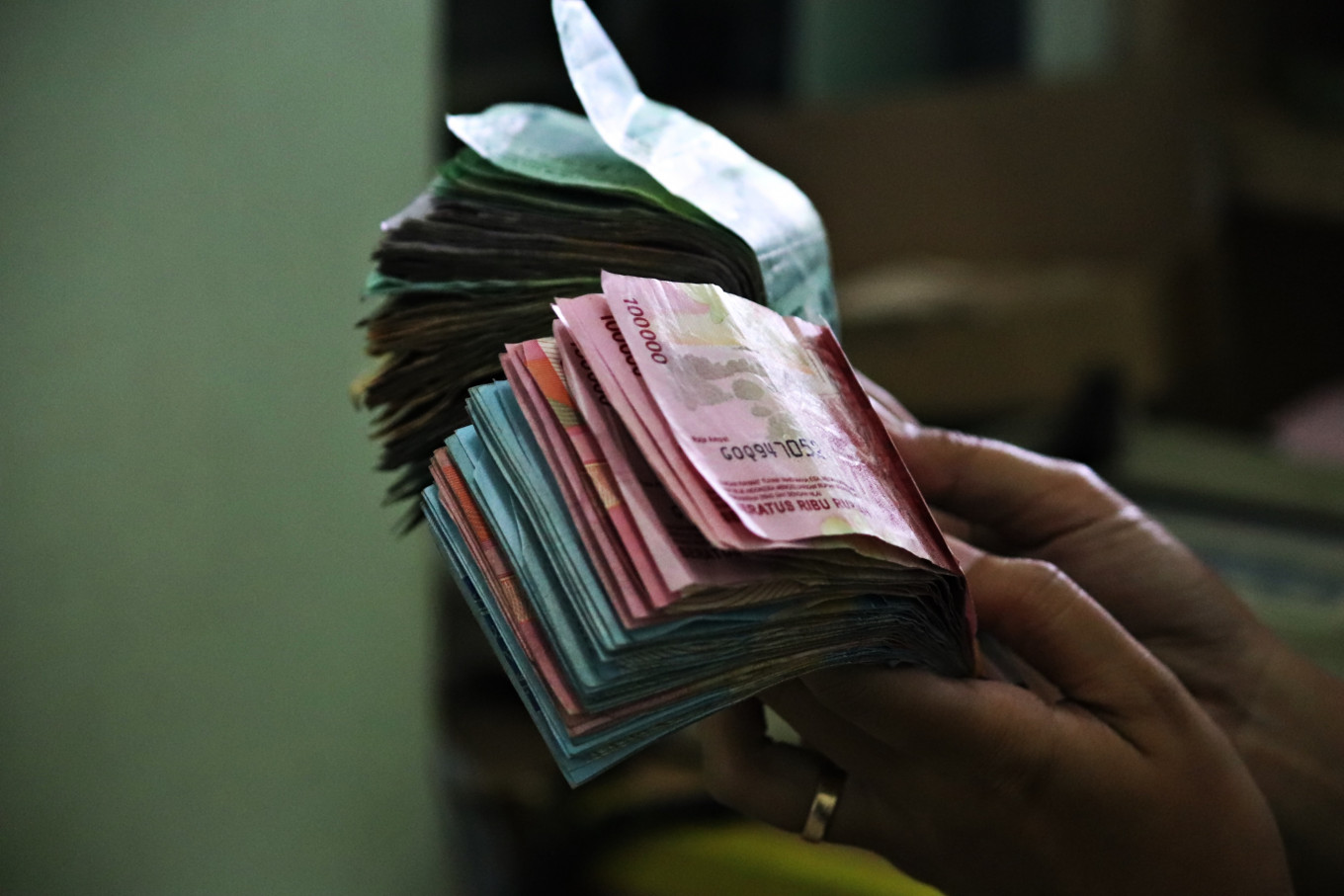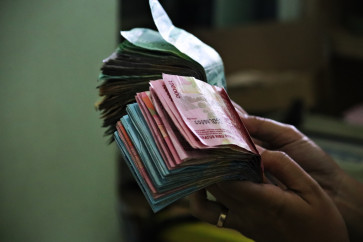Popular Reads
Top Results
Can't find what you're looking for?
View all search resultsPopular Reads
Top Results
Can't find what you're looking for?
View all search results‘Hijrah’ moment: Leaving the dark side of payday loans
To overcome their indebtedness, many individuals apply for another online--payday loan, which traps them in the "Rob Peter to Pay Paul" situation.
Change text size
Gift Premium Articles
to Anyone
I
ndonesia has emerged as promised land for the development of the mobile-payday-loan market (locally known as Pinjol). Based on the data from the Financial Services Authority (OJK), as of April, 122 companies provide legal online-payday-loan services. But the Institute for Development of Economics and Finance (INDEF) data show that 95 percent of payday-loan services are illegal.
Many people today choose to borrow money from the payday loan, because they (1) receive the money instantly, (2) face no restrictions on how to use the loan, (3) have a bad-credit score, (4) require no collateral, and so forth.
From the marketing perspective, many companies from China are entering the Indonesian payday-loan market due to tightening industry regulations set by their government. As the Indonesian market is still in its infancy, foreign companies expect to take a portion of the domestic market prior to any potential regulatory change.
Despite the benefits offered by the mobile-payday-loan-service providers, the industry has its dark side, especially regarding the interest-rate and debt-collection activities. The interest rate of the legal payday loan stood at around 0.8 percent per day in 2021. In a month (30 days), the interest amounts to 24 percent, and in 90 days it soars to a choking 72 percent.
The high-interest rate has led to another problem for lower-income debtors. To overcome their indebtedness, many individuals apply for another online-payday loan, which traps them in the "Rob Peter to Pay Paul" situation.
It is worth noting that Indonesia currently has no specific regulation that protects customers concerning debt-collection activities. In the United States, for example, customers are protected by the Fair Debt Collection Practices Act (FDCPA). The law restricts (1) time and place where debt collectors contact customers at unusual times or places; (2) harassment, which means debt collectors are not permitted to annoy customers by phone calls or other forms of communication.
Due to the absence of legal protection for payday-loan customer in the country, debt collectors feel free to use intimidation, violation of privacy and terror. This method has caused many customers to endure mental distress, depression or even prompted some to commit suicide.



















